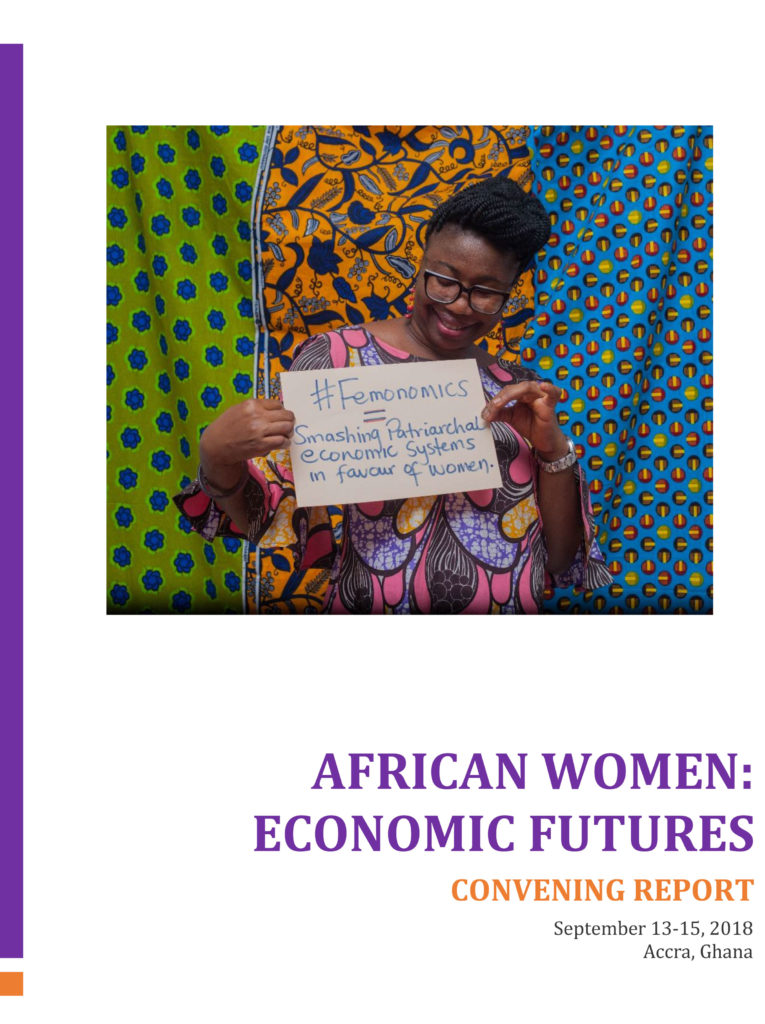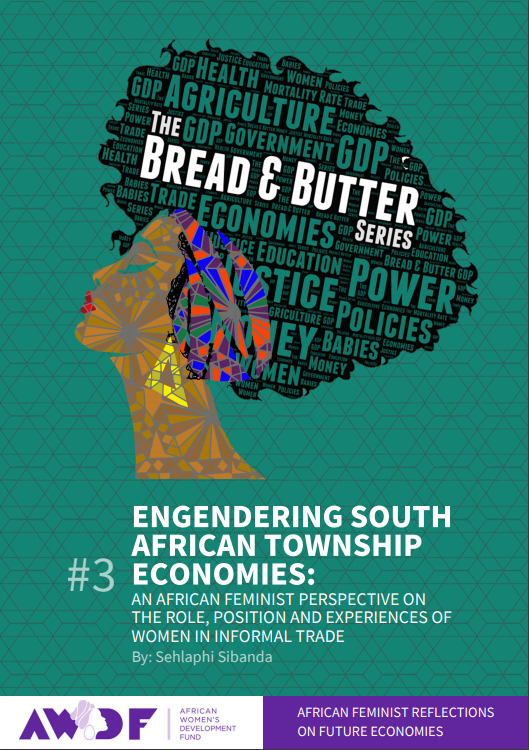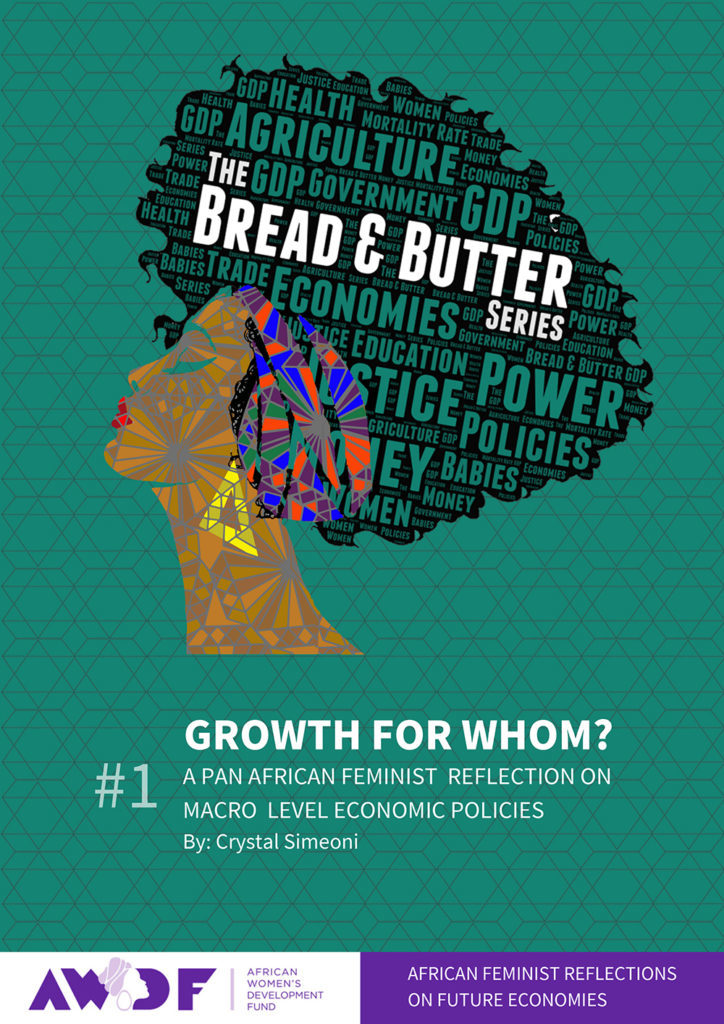Year: 2018
AWDF Leadership and Governance Programme; unlocking great potential in Women’s rights organisations
AWDF Leadership and Governance Programme; unlocking great potential in Women’s rights organisations
[tp lang=”en” not_in=”fr”]
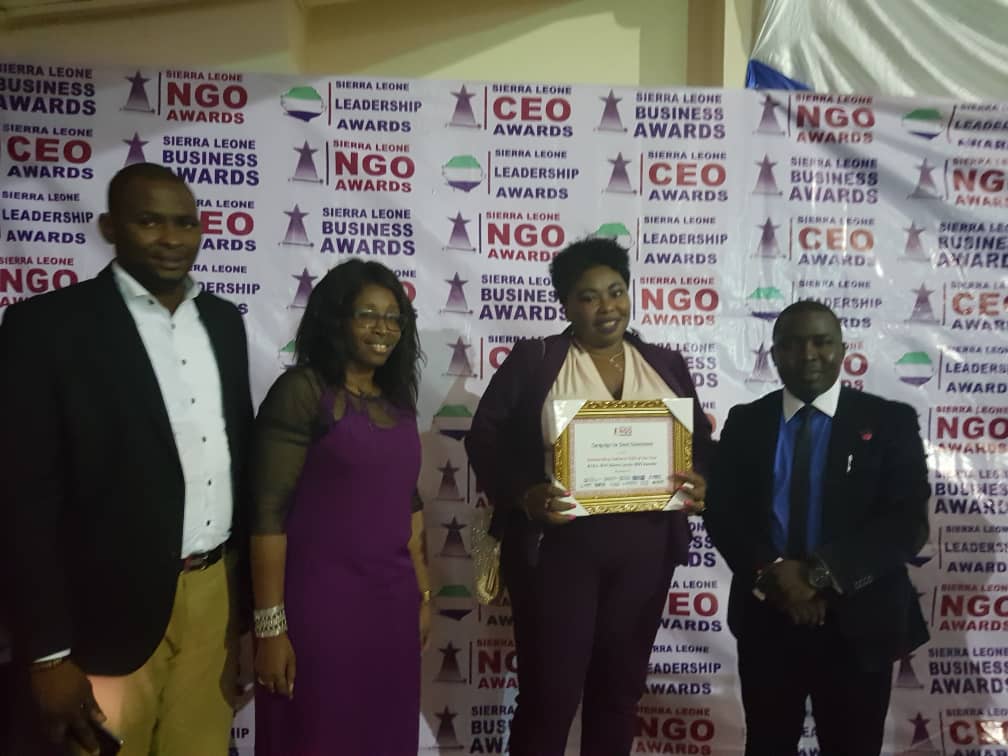
AWDF grantee partner, Campaign for Good Governance (CGG) blazed the trail when they won the “Outstanding CSO of the Year” award at the 2018 Sierra Leone NGO awards held in Freetown on December 13, 2018.
CGG is one of our grantees to benefit from the AWDF two-year coaching programme on leadership and governance targeted at CEOs, Executive Directors and second level management. AWDF believes that strong leaders and organisations provide the backbone for social change and development and therefore places a high premium on investing in both individual leaders and governance frameworks of African women’s rights organisations. Out of the Leadership and Governance Programme, CGG has been able to contribute immensely to the promotion of human rights, women’s political empowerment and good governance in Sierra Leone.
From mobilising women as active voters, training female candidates and first time voters, to recruiting a new executive director, CGG has taken the lead to reposition the Women’s Form and the All Political Party Women’s Association (APPWA) as effective social movements to champion women’s issues in the country.
Receiving the award, Executive Director Marcella Samba-Sesay acknowledged the work of the CGG team and thanked the organisers for recognising the work and contributions of the organisation in Sierra Leone. “This (award) is a stepping stone and motivation to do more and CGG will always work with the values for which it was established,” she added.
The Sierra Leone Business, CEO, Leadership and NGO Awards recognise leaders pioneering the reforms, rapid modernisation, consolidation, integration and expansion of Sierra Leonean enterprises, public institutions and promoting socio-economic growth across the country and beyond. This is the third annual ceremony presented at a gala dinner in the capital which is organised by a consortium of national and international organisations.
16 Days of Hope
16 Days of Hope
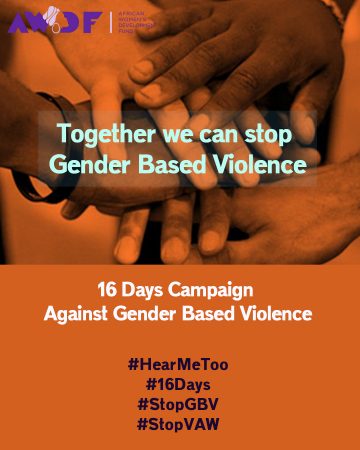
By Nana Akosua Hanson
Imagine this: You are walking through a busy street and everybody keeps grabbing at your body parts. You speak up, but you are shut down. You have no right to open your mouth, they say. They grab you some more. Your body is in pain, so you are in pain. It is such an awkward mind space; feeling the pain of a body that hurts because you carry that body, you own it. It belongs to you, and yet all these people who do not share in the pain of this body claim ownership of it. And they would kill you to make that point. Welcome to Patriarchy.
In Ghana, during the second half of the 90s, the first of the serial killings was traced to Kumasi. Akua Serwaa was found dead near the Kumasi Sports Stadium. The killings spread to Accra. Thirty-three more women were found dead in various states of mutilation and undress. The Accra Strangler became famous. In 2000, four men were standing trial for killing their partners. Seven women at least had been killed in the span of two weeks by their partners over alleged infidelities. These occurrences were not new. The style was familiar. The late 90s and early 2000s was Ghana’s Jack-the-Ripper moment. It played out to a chorus of fury and fear, the ruling government’s insensitivity in politicising Ghanaian women’s murders, and the lack of interest and urgency by the Ghana Police.
In Uganda, it was twenty women in four months. In South Africa, it is three women a day. Same script.
These women were sex workers, loving partners, traders, human beings with hopes and dreams, who had children, and people who loved them, but before everything else, they were Women.
I often think about the nature of patriarchy. Oppressive systems are made up of human beings. Human beings project beyond themselves, unify those projected ideas and from hence, come the establishment of a system. Patriarchy is a unified projection of our hate. In my life, this hate moves from irritating to downright scary. It is frightening to contemplate how grossly hateful a system can be that a by-product of its hate is an outburst of women-killings by a single-minded, hateful man or several groups of hateful men. It is downright scary when you are hit with the horror of the reality of a system that from birth hammers in a language of gender inequality, empowers this inequality by creating “divine” justification and systematises it such that its continuous existence is assured. This is downright scary.
But I have learnt to keep reminding myself to appreciate the many examples of hope that constantly surround us. These are reminders that there is a strong force of goodness in all of this hate and the unification of that projected strong force of love would also soon birth a loving world where people are not targeted because of their gender, sexuality class, ethnicity, race or any category used to create violent rifts because of differences.
Today marks the International Day for the Elimination of Violence against Women. As we commemorate this very first day in our 16 Days of Activism Against Gender Based Violence, let us be reminded about the hope of this day, of this time. My many cards of hope today are the thousands of women who marched through the streets of Accra on April 6th 2002, spoke truth to power and demanded the serial killings stopped and they did.
My special card of hope is that our activism against patriarchy and its consequent violence has come to live and thrive beyond just 16 days, and because of this, every new day brings us closer to a world free from patriarchy and free from Gender Based Violence. Just Imagine.
CEO Forum Report: The Grand Finale
CEO Forum Report: The Grand Finale
Feminist organisations have been at the forefront of women’s and girl’s rights advocacy and action across Africa and the Middle East. Often working in
challenging socio -economic and political contexts with limited organisational capacity and ever-increasing demands, women’s organisations help bridge the public service delivery gap, while redefining conventional ideas and practices on the rights and roles of women in society, the economy, and policymaking. How do these women’s organisations continue to push the envelope on impact
while embarking on feminist movement building? How do they remain innovative and relevant in ever-changing women’s rights, development and professional landscapes? How do they stay accountable as they tackle Africa’s challenging socio-economic and political issues?
To address the capacity building needs of African women’s organisations, the African Women’s Development Fund (AWDF) spearheaded the creation of the CEO Forum. Designed by African feminists, the CEO Forum seeks to build individual and collective leadership and skills of senior, mid -level and emerging women leaders and executives. Participants benefit from networking, technical skills acquisition and professional capacity building, alongside in-person and virtual coaching over a specified timeframe. The coaching process involves practical exercises and feedback for the continuous evolution and growth of African feminist leaders. To date, 60 feminist leaders and activists have been coached.
From 4th to 6th October, 2018, 30 representatives of grantee women’s organisations joined coaches Hope Chigudu, Paula Fray, and Yene Assegid and the AWDF team at Accra’s Best Western Hotel for a period of sharing, reflection, learning and evaluation on the CEO Forum’s successes, shortfalls and impact. The gathering marked the eighth edition and grand finale of the CEO Forum and featured past and prospective coachees working in 14
African and Middle Eastern countries, namely: Benin, Burkina Faso,
Cameroon, Ethiopia, Ghana, Kenya, Lebanon, Malawi, Nigeria, Sierra
Leone, South Africa, Uganda, Zambia, and Zimbabwe.
See below for the event report:
How A Pilot Healing Retreat for African Feminist Activists Can Advance Movement Building
How A Pilot Healing Retreat for African Feminist Activists Can Advance Movement Building

Article By Nana Akosua Hanson
Earlier this year, a video went viral on Ghanaian Twitter of six teen boys raping a young girl. Despite her resistance, these boys held her down and took turns. What haunted me most was their laughter.
Being a feminist activist means confronting this kind of raw ugliness on a daily basis. And it takes a toll. It is physically, mentally, and spiritually exhausting. Without healing, the accumulated trauma can push people out of our movement.
But there are also the magic times, when the unity of our voices and the force of our movement can be uplifting. Like that glorious moment on the 30th of June 2018, when thousands of Ugandans marched together to demand justice for the murders of more than 40 women, a trend in the country since 2015. Amidst drumming, dancing, and waving slogans, their united voices were heard all over the world: No more rape, No more killings, Women’s Lives Matter.
History shows us that feminist activism creates social, political, and economic change that benefits people of all genders. For this reason, it is crucial that activists have the healing we need to keep going.
Right now, African feminist activists are working toward a world where all people can live free from violence, including sexual violence. Where all people have what they need to take care of themselves and their families with dignity. Where all people can be their full selves and determine their own destinies. Who wouldn’t want that?
Empowering African women and promoting the realisation of their rights are critical milestones on the path to this better, more just world. And that’s what the African Women’s Development Fund does, by supporting courageous and dedicated women’s organisations across the continent.
In Liberia, African Women’s Development Fund grantee Zorzor District Women Care (Zodwoca) promotes women’s land and property rights in a region where women’s labour but not ownership of land is encouraged. In Benin, the Association des Femmes dans l’Education (FAWE Benin) is popularising the law on sexual harassment in response to the high incidence of sexual harassment of young girls in schools. And in South Africa, the Social, Health and Empowerment Feminist Collective of Transgender Women of Africa (SHE) is serving as a bridge for the better integration of trans women in the wider women’s movement, and equipping them with advocacy skills. And these are just a few of the thousands of African women’s organizations AWDF has supported since its inception, that are working in many ways to make the continent of Africa a better place for its women, and minorities.
But whether the work requires combing through rape reports, providing emotional support to a widow whose in-laws have just thrown her out of her house, or standing with a female political candidate who is being viciously trolled on social media, trauma builds up.
In Akan ontology, a person is more than their physical body—they are made up of at least three more aspects, the others quasi-physical or completely non-physical. This idea informs the general African approach to health: fully healing requires healing of the body, the mind, and the soul. To treat body aches, for example, a traditional priestess will provide both a physical cure for the body’s ailments, as well as a ritual for mental and spiritual healing.
We want to bring such healing to African feminist activists.
That’s why the African Women’s Development Fund — with the NoVo Foundation’s Radical Hope Fund and in partnership with AIR — is launching the Flourish Project, a three-year initiative that will strengthen feminist organising across Africa through these key interventions:
- Grounding through a pilot model of a retreat for African feminist activists facing burnout and stress, and in need of a reflective and healing space—designed and implemented in collaboration with AIR, a network of African practitioners developing transformative feminist approaches to trauma, emotional wellbeing, and mental health;
- Seeding inspiration for the growth of African feminist movements through intergenerational dialogues and documenting a generation of liberation-era feminist trailblazers; and
- Connecting feminist activists to convene and grow their organising at national and community levels linked to the African Feminist Forum.
The Flourish Project aims to refresh and tend to the vibrant movement of African feminists who have and will continue to shape the future of Africa. It is an investment in the deep movement work that needs support alongside frontline advocacy: the work of documenting and sharing our activist legacies, of finding durable ways to sustain activists working in hostile terrain, and of keeping movement strategy and base-building spaces alive.
Social movements drive social change. And sustainable movements depend on resilient activists. Those activists need space and time to heal—we will not see our feminist dream brought to reality without it.
The African Women’s Development Fund wants funders, activists, and others in the movement to recognize that healing is just as radical and necessary as marching, protesting, or organising.
As the Black American feminist writer Audre Lorde said, “Caring for myself is not self-indulgence, it is self-preservation and that is an act of political warfare.”
For the original article click HERE
Workplace Giving – an opportunity to take action
Workplace Giving – an opportunity to take action

by Gertrude Bibi Annoh Quarshie
“Giving”- in its purest form includes using our hearts, our minds, our talents and other resources in ways that enrich the lives of all people whether poor or rich. It is simply being conscious about the problems around us and taking purposeful action to solve those problems. “Giving” is a dignified selfless act of passion and compassion!
As a staff the African Women’s Development Fund (AWDF), I am very passionate about what we are doing to transform the lives of African women. More often than not, people are interested in how they can also support activities or initiatives that promote or uphold women’s rights. The workplace-giving programme is one of the channels that any group of people can use to raise funds internally. In fundraising, individual efforts are important but the synergy from a group is usually worth the investment and that is why I love the principle of workplace giving.
Workplace giving is an initiative in which employees raise money internally by donating a certain amount from their monthly salaries, deductible at source. The contributors then decide on which project(s) to support with the fund.
The AWDF workplace giving programme was inspired by a donation received from the Hewlett Foundation’s staff workplace giving programme 12 years ago. Since then, the fund has grown in size and in reach, supporting various initiatives that have put smiles on many faces. The Fund is managed solely by staff, with a three-member executive committee. Interested staff members complete a form instructing that a certain amount of money be deducted from their salary each month. All the contributions go into a fund administered by the committee.
Some of the initiatives the fund has supported include the provision of a water tank at the maternal and child centre at the Korle-bu Teaching Hospital Ghana, provision of various sewing equipment to the Nsawam Female prisons and a donation to Operation SMILE. We recently supported the establishment of an innovation lab for students of the Africa Science Academy as well as the provision of equipment for PAYPD Kayayie centre for porter girls.
Having been associated with the workplace-giving programme over the past decade, I have become a stronger advocate of the phrase “don’t just complain about the state of affairs, take action”. GIVING is one way of taking action.
We are all capable of giving. If we can create a movement of individuals committed to donating a percentage of their resources to champion women’s social, economic and health rights, we will be helping to solve many problems. For more information on starting your own giving circles contact awdf@africlub.net/awdf.
Launch: The Bread and Butter Series
Launch: The Bread and Butter Series
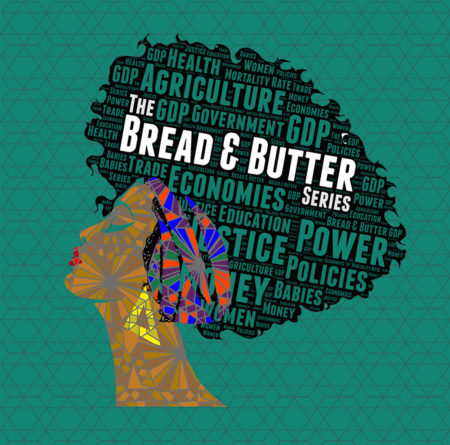 From September 13th – 15th, 2018, AWDF convened 27 activists, academics, development workers and knowledge producers to strategise and prioritise African women’s economic futures. This convening culminated from AWDF’s fourth strategic plan Shaping the Future, and the accompanying Futures Trends Analysis Report which highlighted the socio-economic implications of anticipated trends in Africa for women and girls. Over three (3) consecutive days, we had extensive conversations, workshop and group activities that helped us build sound advocacy strategies for African women’s economic futures. As an institution committed to resourcing African women’s movements, AWDF believes that this convening was the first step in a journey to better support future-oriented strategies to engender African women’s economic justice and security.
From September 13th – 15th, 2018, AWDF convened 27 activists, academics, development workers and knowledge producers to strategise and prioritise African women’s economic futures. This convening culminated from AWDF’s fourth strategic plan Shaping the Future, and the accompanying Futures Trends Analysis Report which highlighted the socio-economic implications of anticipated trends in Africa for women and girls. Over three (3) consecutive days, we had extensive conversations, workshop and group activities that helped us build sound advocacy strategies for African women’s economic futures. As an institution committed to resourcing African women’s movements, AWDF believes that this convening was the first step in a journey to better support future-oriented strategies to engender African women’s economic justice and security.
Bread and Butter is the post-convening knowledge series which aims to document the dynamic, critical and radical perspectives of African women thinking about their economic futures. The expression “bread and butter” refers both to the ways in which individuals come to sustain themselves usually through paid work and individuals’ practical, every day needs and concerns.
We understand this series as our reflection of both the subsistence and practical, every day needs and concerns of African women oriented to the future. We believe that African women’s economic issues are both internalised and challenged in every day acts of resistance and solution-building. We also aim to demystify economics as a white, male and Western concept out of reach for African women.
Indeed, we believe that all African women understand the consequences and solutions for oppressive neoliberal capitalist economic models and we seek to encourage their voices as economic actors, thinkers and shape shifters. We aim to get to the real “bread and butter” issues that women and girls face on this continent, and envision a future Africa that ensures women’s and girls’ sustainable livelihoods, meaningful labour, and full socio-economic autonomy. The series will feature a range of opinion pieces, research essays, poems, stories and narratives of and by African women, with a future-focused feminist economic lens.
We hope that this series will engender new conversations about how we support African women to pursue economic justice and security. We also hope to contribute to a larger conversation about how philanthropic institutions regionally and globally can better support African women’s economic interests, as described by African women, themselves.
Are you passionate about African women’s economic futures? Would you like to contribute to our Bread and Butter series? Are you interested in being a media partner for our series? For details or to pitch a concept, please email our Knowledge Management Specialist, rita@africlub.net/awdf.
Please click on the titles below, to read the knowledge products that were developed as a result of this convening.
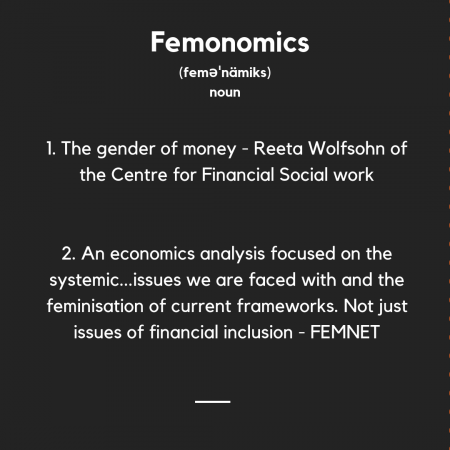
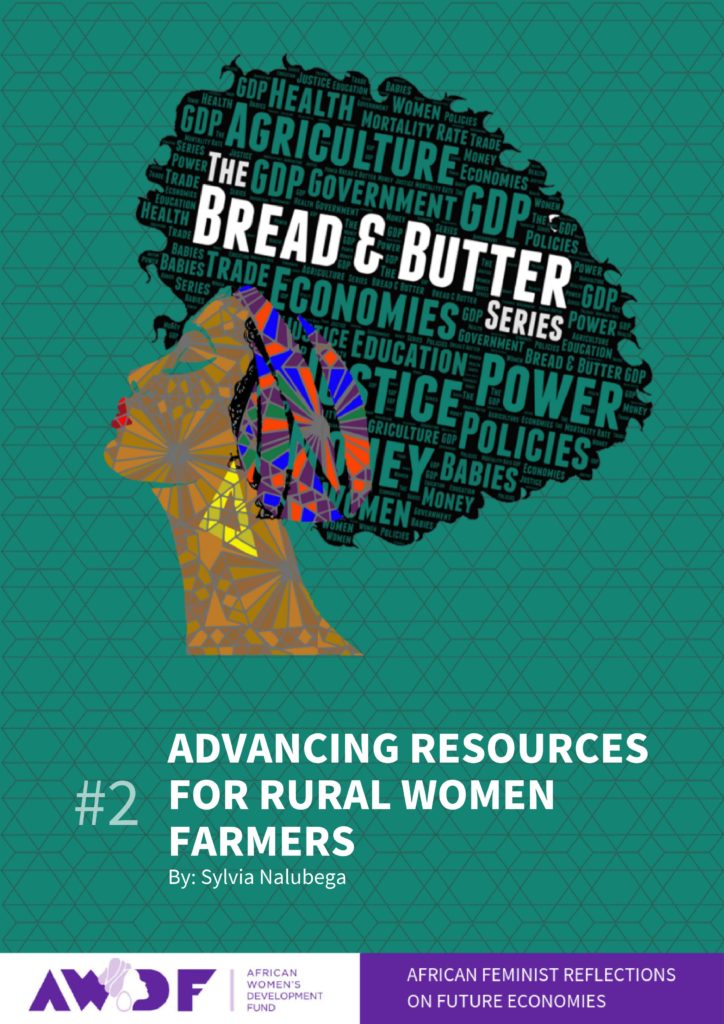
ARTICLE TWO: ADVANCING RESOURCES FOR RURAL WOMEN FARMERS
VACANCY: Human Resources and Administration Manager
VACANCY: Human Resources and Administration Manager
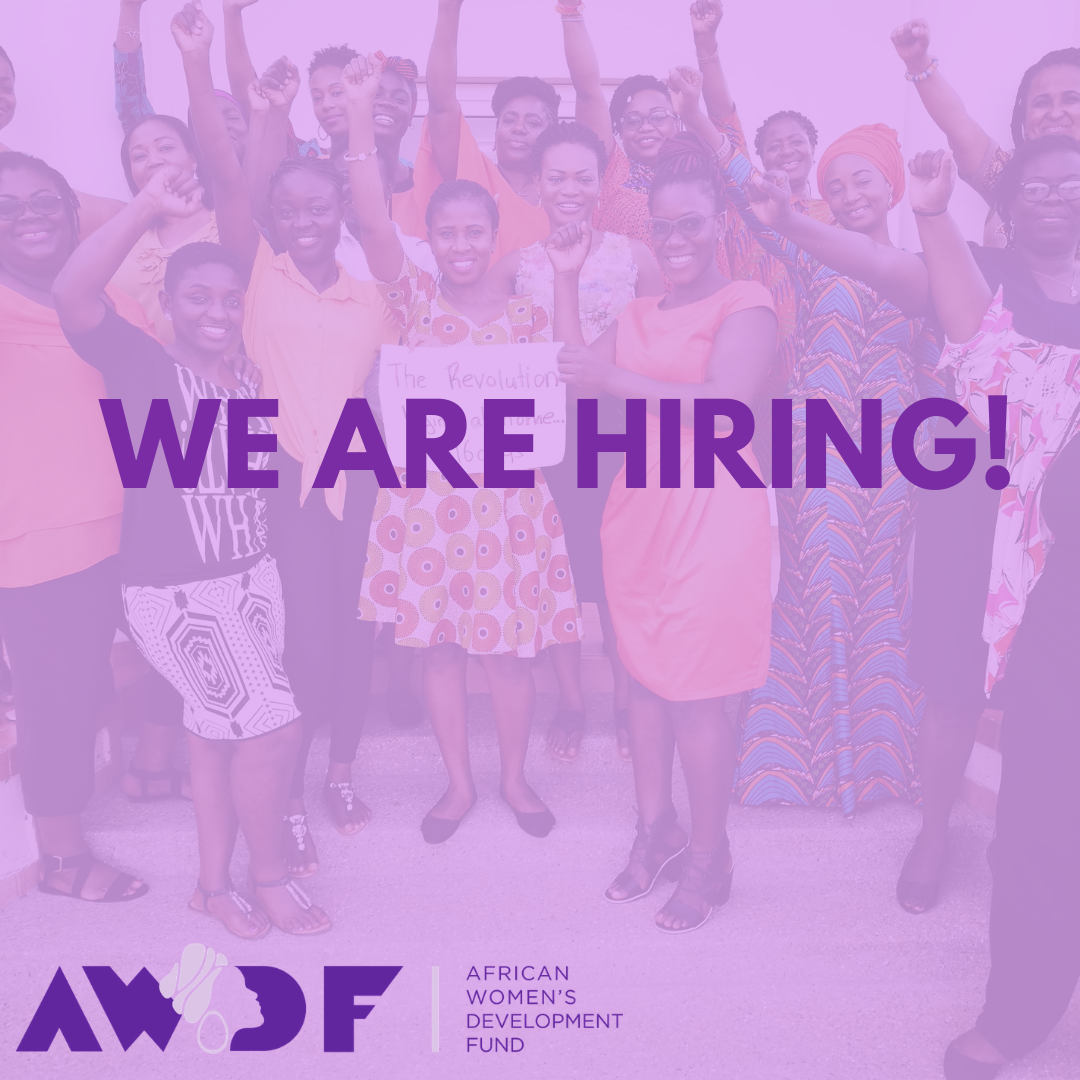
AWDF is looking for a Human Resources Manager. The candidate will be responsible for leading, planning and managing the Human Resources and Administration function of the organisation through the design, development and alignment of policies, procedures, systems and controls guiding critical human resources interventions, applications and outcomes. Working with the Director of Operations and staff to drive the accomplishment of AWDF’s mission and vision and assure its responsiveness and accountability to its diverse constituents.
Click here to see the Terms of Reference: bit.ly/2J9Q1od
The Leadership and Governance Programme: Feminist Leadership in Practice
The Leadership and Governance Programme: Feminist Leadership in Practice
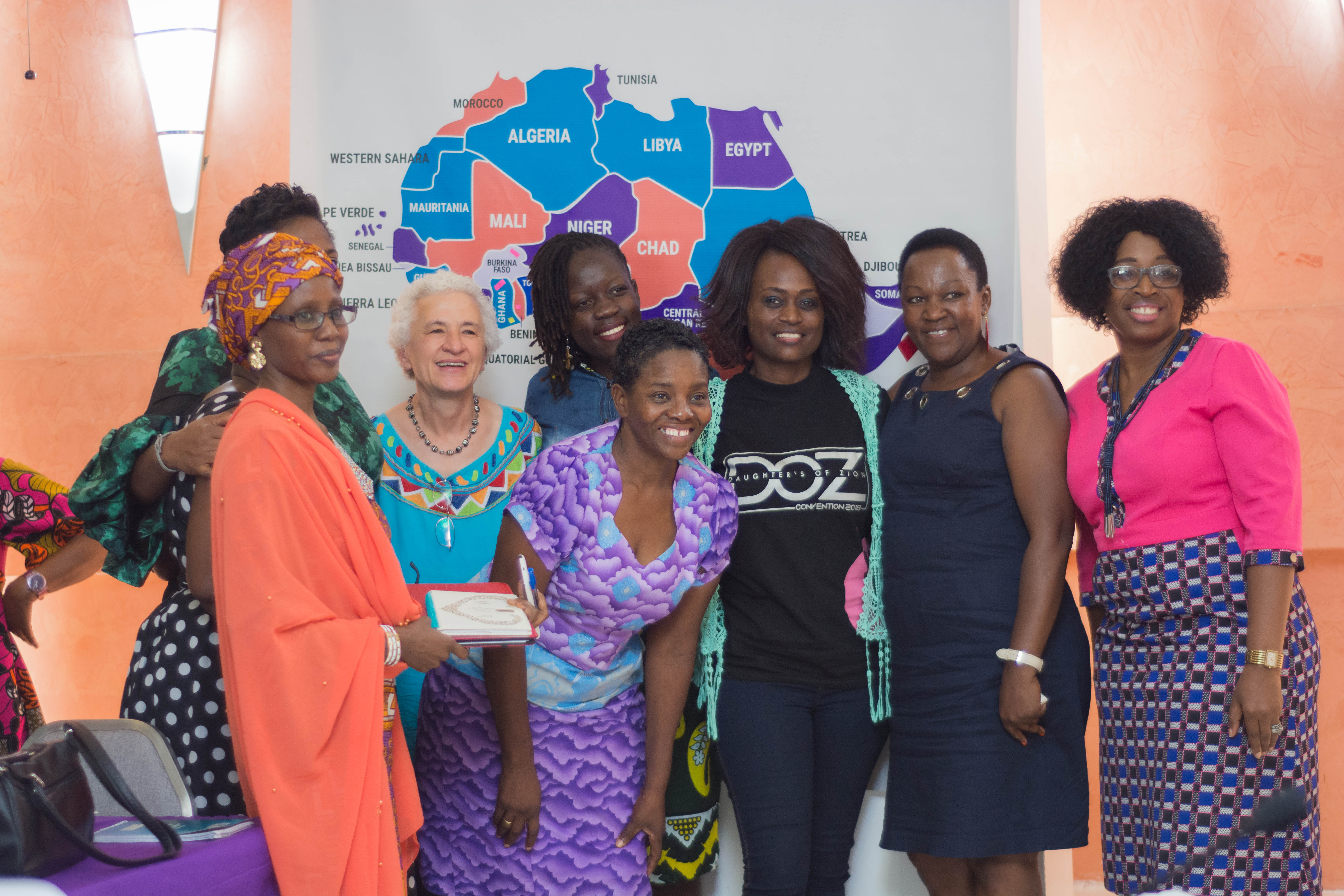
A chapter closes as the well acclaimed CEO Forum of the AWDF Leadership and Governance Capacity building Programme draws to an end in its final convening held in Accra from 4th till 6th October 2018.
The Leadership and Governance Programme of AWDF has been an integral part of our grantmaking process for the past 4 years, having impacted dozens of women-led organisations across Africa. The CEO forum, the flagship of the Leadership and Governance programme, has also provided the opportunity for many women leaders to see themselves and their shared power as the propellant for sustainability for their organisations.
The CEO forum has continued to bring African women leaders together to help foster solidarity, sisterhood and true community. Through the Leadership and Governance Programme , we at AWDF have seen many women leaders truly blossom both personally and in their organisations and we are proud of the work that we have accomplished together.
For our grantees, the Leadership and Governance Programme provides a rare opportunity to engage with and develop feminist leadership. Our wonderful coaches, Hope Chigudu, Paula Fray and Yene Assegid have led each forum and coaching session with warmth and wisdom and provided an environment that allowed participants to grow and to bring others along with them on the journey. Although the programme is ending this year– its necessity is clear when you speak to any of the women who have participated in it, and we hope to be able to restart it in the near future.
Hear some of our wonderful women leaders speak on the programme and their experiences on the journey:
CEO FORUM: An exciting first chapter comes to a close!
CEO FORUM: An exciting first chapter comes to a close!
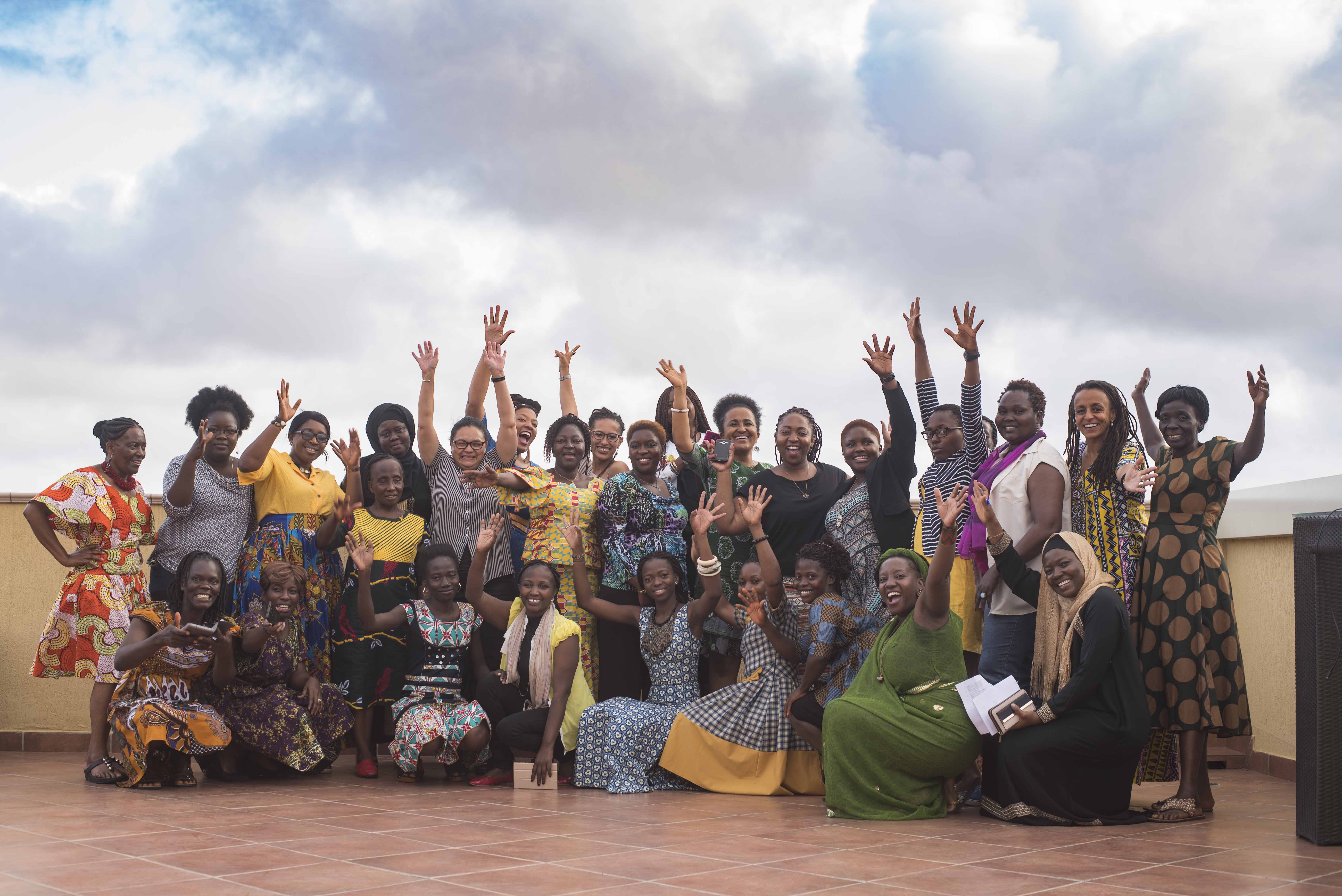
The African Women’s Development Fund believes that feminism is a strong backbone for any women’s organisation just as networking is key to movement building. Our coaching programme has always reflected this belief in the tenacity and ingenuity of African women and our grantees to take tiny seeds and grow them into mighty trees.
The Manda Coaching programme has been a hub for the development of many young leaders across the continent. The aim of the coaching programme has been to nurture and support the continued evolution of African feminist leaders and to support them in their growth.
The coaching programme starts with what has come to be known as the ‘Directors/CEO Forum’ which brings selected grantees together and facilitates exchange among them, develops capacity using different strategies and provides professional and technical skills.
Then follows face-to-face sessions, in addition to social media sessions, where coaching continues for a specified period. The coaching process includes practical assignments that are conducted in between sessions, with coachees putting into practice new ways of seeing and doing things, and also reflecting on experiences in each coaching session. So far, 60 leaders/activists have been coached.
This CEO forum marks the last forum in its four-year cycle, and signals the beginning of a period of reflection and evaluation, both for our coaches and our participants. We’re excited to sit, reflect and learn together as elected coachees, coaches and AWDF staff gather in Accra Ghana, on the 4-6th October 2018.
Track the tags #CEOForum #ShapingAfricasFuture and get involved in the conversation, and also meet some of our wonderful participants.
Joyce Renee Ago DJANIE Programme Officer –Amplify Change
Joyce Renee Ago DJANIE Programme Officer –Amplify Change
Joyce started her career at the Planned Parenthood Association of Ghana (PPAG) as a volunteer and later became a staff working as a Project Officer for the Accra Young and Wise Centre. She recently worked with the Ministry of Gender Children and Social Protection and the Ministry of Local Government and Rural Development as a Consultant on the World Bank funded Ghana Social Opportunities Project (GSOP). She has also served on the UNFPA Global Youth Advisory Panel, National HIV Anti-Stigma Taskforce, PPAG National Governing Council and the Board of Purim Youth Development Platform (PAYAD).
She holds a Master of Arts Degree in International Affairs and a Bachelor of Arts Degree in Psychology from the University of Ghana. She also holds a certificate in Project Management / Procurement and Financial Management from the Management Development and Productivity Institute (MDPI) and a certificate in Monitoring and Evaluation from the Ghana Institute of Management and Public Administration (GIMPA). She is an alumnus of the African Women’s Leadership Institute (AWLI); International Programme for Development Evaluation Training (IPDET) by Carlton University and the Ghanaian Women Social Leadership Programme by New York University.
In her free time, Joyce writes and directs original plays on socio-religious themes for audiences of diverse backgrounds. Some of her recent pieces are Crack in the Pulpit: When the Women Decided to Form Their Own Church; God Loves the Fishermen and Melodies from Our Family Well.

